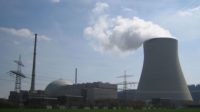Russia's invasion of Ukraine could accelerate the transition from fossil fuels toward renewables, says the International Energy Agency's World Energy Outlook, published Oct. 27. But it also warned that clean energy investment in countries' current national plans must double to $4 trillion a year by 2030 to achieve net zero greenhouse gas emissions by 2050.
With high energy prices sparked by the Ukraine attack on Ukraine, "the energy world is shifting dramatically before our eyes," said IEA executive director Fatih Birol. "Government responses around the world promise to make this a historic and definitive turning point towards a cleaner, more affordable and more secure energy system.”
Based on government policies around the world, the group forecasts coal use falling back within the next few years, natural gas demand peaking by this decade's end and oil demand leveling off by the mid-2030s.
Fossil fuel share of the global energy mix would fall from around 80% to just above 60% by mid century.
IEA's analysis found "scant evidence to support claims ... that climate policies and net zero commitments contributed to the run-up in energy prices." Instead, "in the most affected regions, higher shares of renewables were correlated with lower electricity prices."
Meanwhile, new U.K. prime minister Rishi Sunak has reinstated the national ban on gas fracking that was lifted by his predecessor Liz Truss during her record short 45-day tenure in the post and has indicated he may reverse her plan to end restrictions on onshore wind energy development.
Appointed prime minister on Sept. 5, she bowed out on Oct. 25 after her proposed unfunded tax cuts caused government borrowing costs and home mortgage costs to skyrocket.






Post a comment to this article
Report Abusive Comment